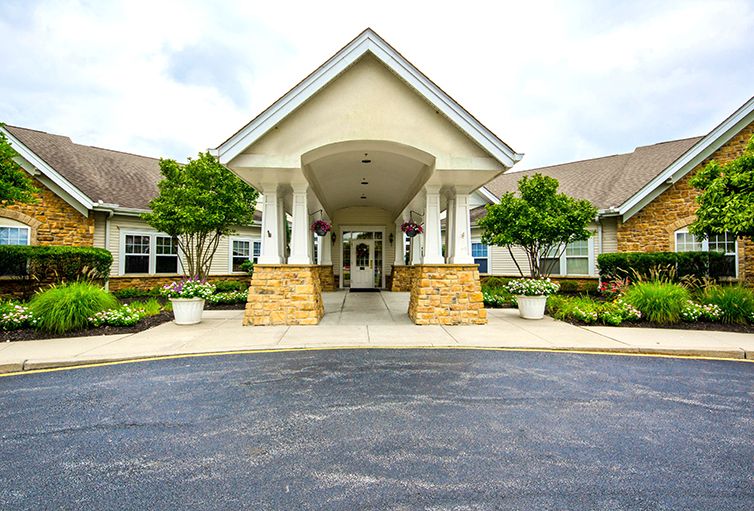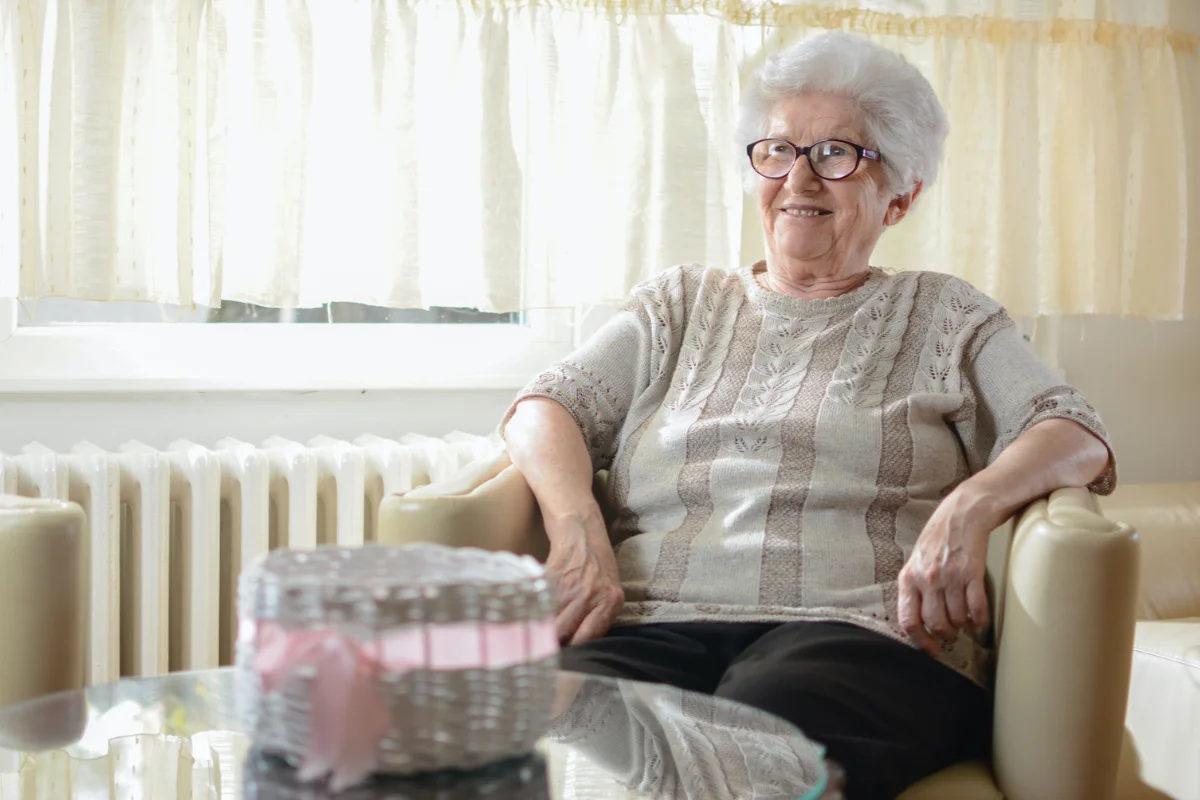All Regarding Memory Care Providers: Why Small Memory Treatment Residences Are a Great Choice
Memory treatment services play an essential function in supporting individuals with Alzheimer's and dementia. Tiny memory treatment homes attract attention for their customized method and intimate setting. With reduced staff-to-resident ratios, these homes promote stronger links and tailored treatment. Locals take advantage of enhanced social communications and a secure environment. As households discover alternatives, understanding the special advantages of small memory treatment homes comes to be essential. What variables should be thought about when selecting the appropriate home?
Understanding Memory Treatment Solutions
While numerous may know with general elderly treatment alternatives, understanding memory treatment services is important for family members encountering the difficulties of cognitive decrease. Memory care specifically provides to people with problems such as Alzheimer's illness and other kinds of dementia. These services supply an organized atmosphere that concentrates on improving the quality of life for residents with specialized treatment and support.Memory care centers are developed to assure safety and security and safety, frequently including protected atmospheres to avoid roaming. Trained employee are available all the time to assist with daily tasks, drug monitoring, and individual care. Furthermore, memory treatment programs often consist of cognitive stimulation tasks, tailored to engage homeowners and promote psychological wellness. Family members can gain from comprehending these services, as they make it possible for educated choices regarding their loved ones' care, making sure that their specific needs and preferences are dealt with in a compassionate and helpful manner.
The Advantages of Little Memory Care Houses
Tiny memory care homes provide distinctive advantages that can significantly improve the top quality of life for citizens with cognitive disabilities. One considerable advantage is the intimate environment, which enables personalized interactions among staff and residents. This smaller setup promotes purposeful partnerships, decreasing sensations of seclusion and anxiety often experienced by individuals with memory issues.Additionally, the lower staff-to-resident ratio in little memory treatment homes enables caretakers to supply even more conscientious supervision and support. This approach not only improves safety but likewise advertises a feeling of security for the residents.Moreover, small memory treatment homes can adapt promptly to the unique demands and preferences of each citizen, allowing for an extra homey environment. Such an atmosphere can motivate social interaction and participation in tasks, eventually enhancing the everyday experiences of those dealing with cognitive disabilities.
Personalized Treatment Program for Residents
Customized care plans are essential in memory care homes, as they satisfy the one-of-a-kind needs and choices of each citizen. These plans begin with thorough analyses carried out by experienced professionals, who review cognitive capabilities, medical background, and individual rate of interests. This customized method guarantees that care is not just efficient however likewise respectful of each individual's dignity and autonomy.Moreover, customized treatment plans are flexible, enabling adjustments as citizens' needs develop with time. This flexibility fosters a feeling of security and familiarity, which is crucial for individuals living with memory obstacles. Caretakers are trained to implement these plans regularly, providing assistance that lines up with the citizens' routines and preferences.Ultimately, individualized care plans boost the quality of life for residents by advertising independence, health, and engagement, making them a fundamental element of memory treatment services in little memory care homes.
Creating a Home-Like Atmosphere
Developing a home-like atmosphere is critical for promoting convenience and familiarity in memory care settings, as it considerably affects residents' emotional well-being. Small memory treatment homes usually prioritize individualized touches, such as warm color schemes, household photos, and acquainted furnishings plans, which assist locals feel a lot more comfortable. Including aspects reminiscent of a standard home, like relaxing space and common locations, encourages a sense of belonging.Moreover, using all-natural light and exterior areas can improve the ambience, advertising relaxation and peace. Personnel members play a substantial function in preserving this setting by engaging with locals in a thoughtful way, treating them like family. Routine tasks, such as cooking or horticulture, can also add to a home-like feel, using opportunities for citizens to take part in meaningful experiences. On the whole, creating a nurturing atmosphere supports cognitive feature and emotional stability, making it a crucial element of memory care services.
Enhanced Social Interaction and Community
Enhanced social interaction and community are vital components of memory treatment solutions. By fostering customized social involvement and creating a family-like ambience, these solutions promote meaningful connections amongst residents. Group activities and events even more encourage engagement, assisting individuals feel much more included and supported.
Individualized Social Involvement
While social communication is essential for general health, numerous people with memory disabilities frequently battle to engage meaningfully with others. Individualized social involvement in memory treatment homes addresses this obstacle by developing tailored activities that provide to homeowners' distinct interests and capabilities. By focusing on specific preferences, caregivers can foster links that resonate deeply with everyone. Tasks such as art treatment, songs sessions, and directed conversations advertise cognitive excitement and emotional expression. Furthermore, tiny team setups urge friendship and permit more intimate communications, boosting feelings of belonging. This approach not just combats sensations of isolation yet also empowers locals to preserve a feeling of identity, ultimately adding to enhanced mental health and top quality of life.
Family-like Ambience
In a memory treatment setup, fostering a family-like ambience significantly improves social communication and develops a feeling of neighborhood amongst citizens. Smaller sized memory treatment homes commonly prioritize intimate settings, enabling citizens to develop closer links with one an additional and employee. This nurturing environment advertises trust, which is crucial for people with memory impairments. Homeowners are much more likely to engage in discussions and share experiences, producing a helpful network that minimizes sensations of isolation. The experience of common rooms and routines adds to a feeling of belonging, better encouraging social interaction (personalized memory care). In such setups, psychological bonds flourish, bring about enhanced general health and a better of life for homeowners as they browse their everyday experiences together
Group Activities and Events

Security and Safety And Security Features in Small Residences
Lots of tiny homes created for memory care incorporate crucial safety and safety functions to guarantee the wellness of citizens. These homes typically use safe entrance and exit indicate prevent straying, a typical problem amongst individuals with memory impairments. Additionally, monitoring systems and alarm devices improve tracking, guaranteeing that team can without delay reply to any type of uncommon activities.Interior formats are customized for safety and security, with reduced risks such as sharp edges and clutter-free paths. Handrails and non-slip floor covering are typically installed to lower the danger of falls. Employee are trained in emergency situation protocols, ensuring they are prepared for different situations.Moreover, visit the website personalized treatment strategies might consist of evaluation of private safety requirements, offering customized options for every citizen. On the whole, these safety and protection features create a nurturing environment where homeowners can prosper while preserving their self-respect and self-reliance.
How to Select the Right Memory Treatment Home
Just how can households ensure they choose one of the most appropriate memory treatment home for their enjoyed ones? The decision needs cautious factor to consider of numerous aspects. First, family members should examine the center's team certifications and training, making certain that caregivers are experienced in important source handling memory-related conditions. Next, it's crucial to examine the home's atmosphere, concentrating on safety and security features and whether it cultivates a feeling of neighborhood and belonging. Visiting the center can offer understanding right into day-to-day tasks and the social environment, which are important for mental excitement and emotional health. Additionally, families ought to inquire about the treatment strategies used, guaranteeing they are tailored to specific demands. Finally, thinking about the home's location and availability for family members check outs can add to a smoother shift. By attending to these facets, families can make an educated choice that prioritizes their enjoyed one's comfort and lifestyle in a memory care setting.
Often Asked Questions
What Credentials Should Team Members in Memory Treatment Homes Have?
Team member in memory care homes ought to have pertinent qualifications, experience in mental deterioration treatment, strong interaction abilities, and compassion. Continuous training in behavior management and restorative interventions boosts their ability to sustain residents effectively.
Just How Do Memory Treatment Services Differ From Typical Assisted Living?
Memory care solutions concentrate particularly on people with memory disabilities, providing specific assistance and organized atmospheres. On the other hand, standard assisted living provides general aid with daily activities, lacking the customized strategy needed for those with cognitive obstacles.
What Kinds of Activities Are Used in Memory Treatment Houses?
Memory treatment homes usually use a variety of activities developed to involve citizens. Usual alternatives include art therapy, songs sessions, cognitive video games, workouts, horticulture, and get-togethers, all targeted at enhancing health and cognitive function.
Can Locals Bring Their Own Belongings to Memory Treatment Homes?
Locals can normally bring their own personal belongings to memory care homes, enabling them to personalize their living space - personalized memory care. This practice helps create a familiar setting, promoting convenience and a feeling of identity for the individuals

Exactly How Are Relative Associated With the Care Refine?
Member of the family play an important function in the care procedure, usually participating in decision-making, attending care conferences, and offering psychological support. Their involvement cultivates a joint atmosphere, enhancing the resident's overall wellness and lifestyle. While numerous may be acquainted with general elderly care alternatives, comprehending memory treatment solutions is essential for families encountering the challenges of cognitive decrease. These services supply a structured atmosphere that focuses on enhancing the high quality of life for residents through specialized treatment and support.Memory care centers are designed to guarantee security and safety and security, commonly including protected settings to stop roaming. Individualized treatment strategies are essential in memory treatment homes, as they provide to the one-of-a-kind requirements and choices of each citizen. imp source Staff members in memory treatment homes must have relevant qualifications, experience in mental deterioration treatment, strong communication skills, and empathy. Memory care services focus particularly on individuals with memory disabilities, offering customized assistance and organized settings.